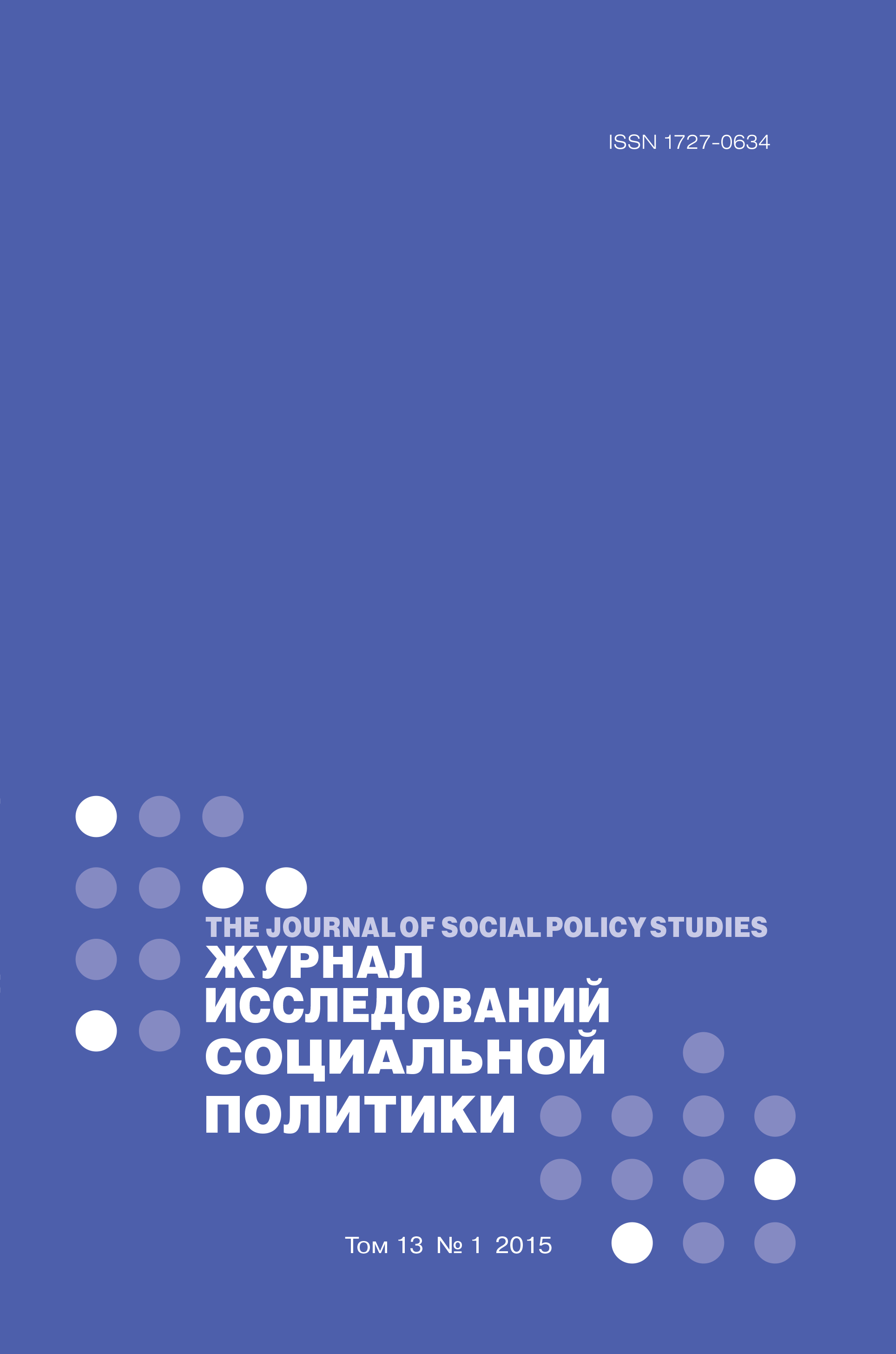Факторы размера социальных выплат в странах Европейского Союза: "качество управления" VS "политика имеет значение"
Аннотация
The contribution of this article is to test alternative approaches to explaining variation in the generosity of welfare spending across states. To test the hypothesis that institutions have a stronger effect on social spending than the alignment of political forces in the government, we use panel data from 27 European Union member-states (Austria, Belgium, Bulgaria, Cyprus, the Czech Republic, Denmark, Estonia, Finland, France, Germany, Greece, Hungary, Ireland, Italy, Latvia, Lithuania, Luxembourg, Malta, the Netherlands, Poland, Portugal, Romania, Slovakia, Slovenia, Spain, Sweden and the United Kingdom) over the period 1990 – 2011. We rely on the experience of previous research papers and use social expenditure (% of GDP) as a measure of welfare generosity (the Eurostat database is the source of data). To verify the power resource approach to explaining variation in social spending, we use data on left-wing parties as a percentage of parliamentary seats for all governmental parties (the Comparative Political Data Set 3). To measure quality of government we use the Quality of Government indicator, provided by the International Country Risk Guide. The broad country and time coverage of this index explains the frequent use of this measure in empirical research. Regression analysis, including mixed-effects modelling, demonstrates that there is a positive relationship between institutional and welfare performance. However, an analysis of subsamples within the dataset (to capture possible variation in the effect of independent variables on social spending we introduce a set of variables for welfare regimes) shows that the effect of the quality of government on welfare generosity varies across states: the strong positive effect holds only for post-communist states. The detected tendency implies that the ongoing process of democratisation accompanied by the increasing quality of government offsets the clientelist-oriented weak party system. At the same time the effect produced by the alignment of political forces on social spending turns out to be insignificant, and this result remains robust to subsampling, changes in specifications and methods. Our study verifies that power resource theory is losing its explanatory potential, while the role of institutional performance in explaining the generosity of the welfare state is increasing.Скачивания
Данные скачивания пока не доступны.
Опубликован
2015-03-28
Как цитировать
СальниковаД. В. (2015). Факторы размера социальных выплат в странах Европейского Союза: "качество управления" VS "политика имеет значение". The Journal of Social Policy Studies, 13(1), 109-122. извлечено от https://jsps.hse.ru/article/view/3341
Раздел
СТАТЬИ НА АНГЛИЙСКОМ ЯЗЫКЕ















